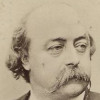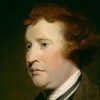“ What can we have but reverence for a man who foretells plainly things which come to pass, and who declares his intention both to blind and to enlighten, and who intersperses obscurities among the clear things which come to pass? ”
Blaise Pascal, Pensées (1670). copy citation
| Author | Blaise Pascal |
|---|---|
| Source | Pensées |
| Topic | reverence obscurity |
| Date | 1670 |
| Language | English |
| Reference | |
| Note | Translated by W. F. Trotter |
| Weblink | http://www.gutenberg.org/files/18269/18269-h/18269-h.htm |
Context
“Scriptum est, Dii estis, et non potest solvi Scriptura.
Hæc infirmitas non est ad vitam et est ad mortem.
Lazarus dormit, et deinde dixit: Lazarus mortuus est. [281]
754
The apparent discrepancy of the Gospels. [282]
755
What can we have but reverence for a man who foretells plainly things which come to pass, and who declares his intention both to blind and to enlighten, and who intersperses obscurities among the clear things which come to pass?
756
The time of the first advent was foretold; the time of the second is not so; because the first was to be obscure, and the second is to be brilliant, and so manifest that even His enemies will recognise it.”
source



